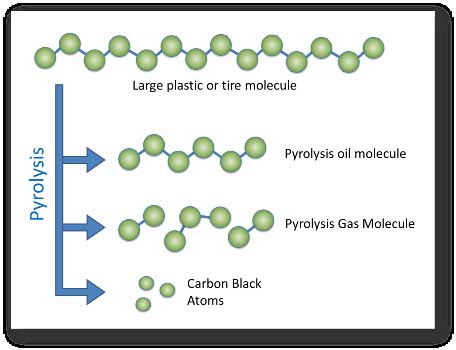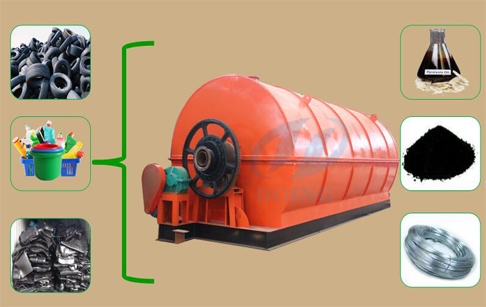What is the definition of pyrolysis ?
Waste Tire/Plastic Pyrolysis Plant / Date:April 27, 2017

Pyrolysis
Pyrolysis is the destructive distillation of organic material through the application of intense, indirect heat in the absence of oxygen.
Waste material is reduced to synthetic gas (syngas) and non-hazardous carbon char (biochar) via pyrolysis.
Pyrolysis can be used to convert chemicals such as ethylene dichloride to polyvinyl chloride (PVC). Biomass or waste can be converted into other useful products such as syngas using pyrolysis.
Anhydrous pyrolysis happens when a solid organic material is heated without oxygen. Frying, baking, toasting and roasting are examples of pyrolysis, as the outer layer of the food changes as it is heated, but the inside doesn't. Charcoal is produced by the pyrolysis of wood. Flames in a wood fire are caused by gases combustion as a result of pyrolysis, not the act of burning wood itself. As a result of this, pyrolysis is important for those involved in fire safety.
Hydrous Pyrolysis takes place using water. Using this method of pyrolysis, waste matter can be transformed into a liquid with similar characteristics to light crude oil.

Pyrolysis plant
Request Information
Send your inquiry for further information





